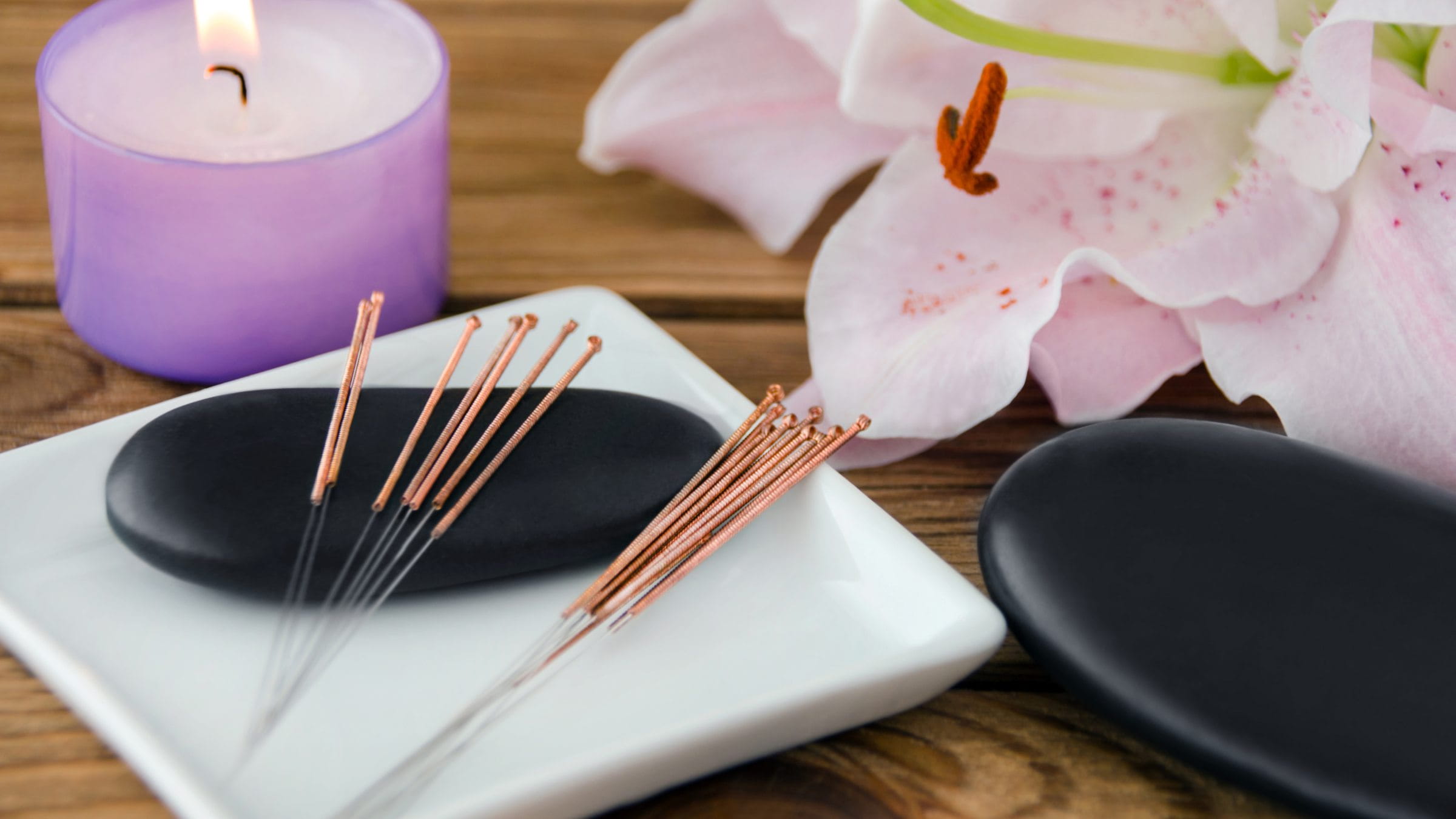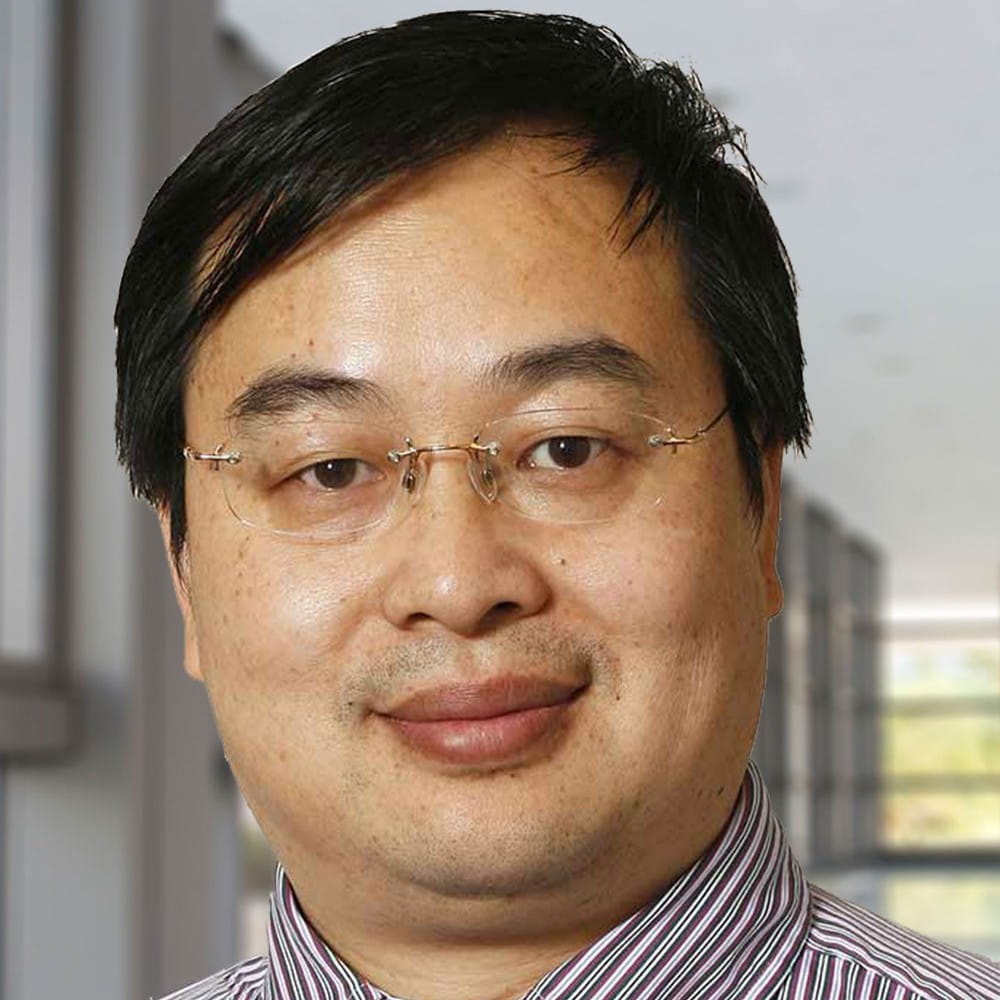
Think of acupuncture, and you think needles.
“Won’t it hurt?” you might wonder.
I’m asked that question a lot. Though acupuncture involves needles, the needles are entirely different from hypodermic needles used for shots or medication. Acupuncture needles are much thinner — each as thin as a strand of hair. They’re fine and flexible. Their points are smooth — not hollow with cutting edges like hypodermic needles. If acupuncture needles cause any sensation, it’s typically similar to a mosquito bite or a mild pinch.
How does acupuncture relieve pain?
The needles are placed at strategic spots on the body to try to stimulate the body’s natural healing abilities by triggering the release of hormones in the body that can ease pain.
Say you suffer from lower back pain. An acupuncturist might insert needles in your lower back and lower limbs to try to relieve your pain. It likely would take five to 10 sessions of acupuncture to get rid of the pain entirely.
Who should try acupuncture?
Whatever health issue you’re struggling with, acupuncture may be an alternative to consider if medication or other therapies aren’t working for you or are leaving you dealing with intolerable side effects. It could be an appealing option for someone seeking an approach that promotes the body’s ability to heal itself.
What is acupuncture?
An essential part of Chinese medicine, acupuncture can be a safe and painless way to treat a wide variety of medical problems. It’s based on ideas and theories formulated over thousands of years.
In acupuncture, fine, sterile needles are inserted at specific acupuncture points on the body. Sometimes an electrical pulse is combined with the needles for increased stimulation. Herbs may also be applied to the spots where needles were inserted.
How does it help?
The traditional Chinese medicine theory of how acupuncture works is that channels, or meridians, of energy run in regular patterns throughout the body and over its surface. These energy channels flow through the body to irrigate and nourish the tissues and organs. This theory states that any block in the movement of energy is like a dam that can obstruct the flow of blood, bodily fluids and metabolic waste, thereby creating imbalances in the body.
Placing needles in certain points on the body is believed to influence the meridian by unblocking the obstructions and re-establishing a healthy flow through the meridians. The idea is that because meridians link with the organs, acupuncture treatment could also help improve the function of the internal organs. The improved energy flow and biochemical balance produced by acupuncture would then stimulate the body’s natural healing abilities, promoting physical and emotional well-being.
Western science has also suggested several theories for how acupuncture works, including that acupuncture stimulates the release of hormones, including norepinephrine and acetylcholine. The effect of stimulating these hormones is to reduce pain and normalize the functioning of the body’s system that regulates heart rate, blood pressure, respiration and digestion. Another theory states that acupuncture stimulates the secretion of the beta-endorphins and enkephalins. The release of these hormones influences your immune system and reduces pain.
National Institutes of Health studies have shown that acupuncture may help ease pain that’s often chronic, including back pain, neck pain, and knee pain from osteoarthritis. It may also be an effective prevention method for migraine headaches and could reduce the frequency of tension headaches.
What happens during acupuncture?
During an acupuncture treatment, you may experience a sensation of tingling, vague numbness, heaviness or a dull ache in the area while the practitioner is stimulating the point. Sometimes people experience a sensation of energy spreading and moving around the needle or along the course of the meridian. These can all be positive signs that the treatment is working.
What conditions can be treated with acupuncture?
Acupuncture can be used to treat acute and chronic problems as well as to prevent the need for medical treatment.
I often use acupuncture to treat conditions including: headaches, migraines, chronic pain in any part of the body, neuropathy, anxiety, depression, PTSD, nausea, sexual dysfunction, insomnia, digestive issues, constipation, smoking cessation, infertility and cancer treatment support as well as the side effects of chemotherapy and radiation.
How do you know if acupuncture is working?
A patient may notice changes or improvement after a few treatments. For instance, pain may lessen in intensity and frequency. Some patients report feeling more energy and less stress, sleeping better, and feeling in a better mood and better in tune with all of their senses.
Does acupuncture work immediately?
Some people may experience improvement right away, but for most of people, it takes a few treatments before noticing a positive change. It depends on the condition being treated.
What are the short-term and long-term benefits of acupuncture?
Acupuncture may stimulate the body’s natural healing abilities and promote physical and emotion well-being. It has been used to treat and prevent a variety of health issues.
- Short-term benefits may include improving symptoms, reducing pain and stimulating energy, focus and relaxation.
- Long-term benefits may include improving your overall well-being and reducing or eliminating chronic problems such as pain and low energy, while improving your mood and quality of sleep.
When is acupuncture preferable to other therapies or medication?
For managing pain, acupuncture may be an effective alternative to medication. Often, acupuncture is used for different kinds of pain, such as headaches, migraines, lower back pain, neck pain, dental pain, menstrual cramps and osteoarthritis. In recent years, acupuncture has been shown to relieve symptoms induced by chemotherapy and radiation and can supplement other therapies for infertility.
At what age can you start acupuncture?
I treat patients of all ages.

Integrative health helps heal the whole person
Learn more about our programs and schedule an appointment.
Learn more




